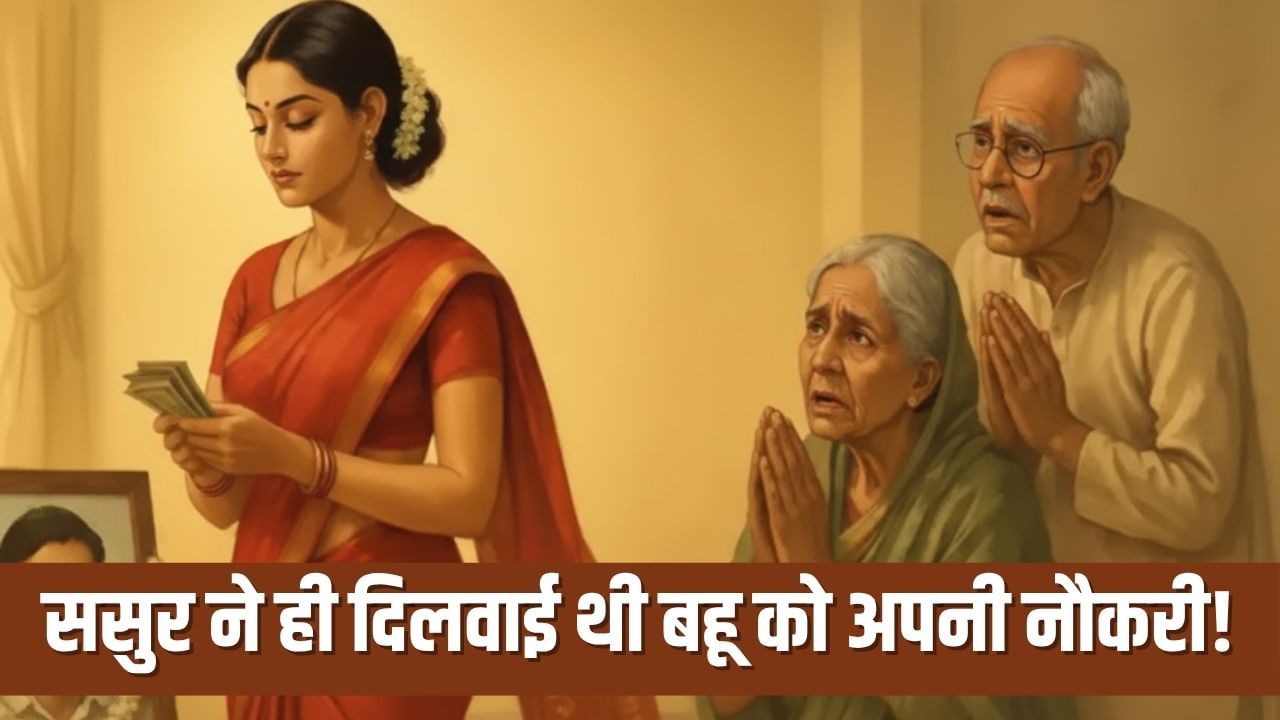It was the father-in-law who got the daughter-in-law his job!
Rajasthan High Court has given a big verdict in a very touchy and important case. The court has ordered a widow daughter-in-law to deduct Rs 20,000 every month from her government job salary and give it to her father-in-law. This drastic step was taken because the woman had got this job thanks to her father-in-law, but as soon as she got the job, she not only left her elderly father-in-law and mother-in-law destitute, but also got married for the second time.
Father-in-law showed generosity, got his daughter-in-law a job
This entire matter is of 2015. Late Rajesh Kumar, son of petitioner Shri Bhagwan, worked as a Technical Assistant in Ajmer Vidyut Vitran Nigam Limited. He died while in service on 15 September 2015. A mountain of sorrow fell on the family.
The department asked Mr. Bhagwan, father of the deceased employee, to apply for compassionate appointment under the 1996 rules. It is clear from the records that it was Shri Bhagwan who got the first right and offer of the job. But out of generosity and perhaps thinking that the daughter-in-law would take care of the family, instead of taking up the appointment herself, she recommended the name of her widowed daughter-in-law, Mrs. Shashi Kumari.
The investigation report of the officials clearly revealed that Shri Bhagwan and his wife had no independent source of livelihood and were completely dependent on their son. After the death of my son, I was not able to get even two square meals a day.
Gave an affidavit for job
The most important aspect of this case is the affidavit which daughter-in-law Shashi Kumari gave while applying for the job on 19 October 2015. In this affidavit he had made three promises.
- She will live with her deceased husband’s parents (father-in-law and mother-in-law) and take care of them.
- She will take full responsibility for their welfare.
- She will not marry again.
However, the court clarified that it is not commenting on the individual right of the woman to remarry. But, the solemn assurance given by him regarding the maintenance of his father-in-law and mother-in-law was the main and basic basis of that compassionate appointment. On the basis of this promise, he was appointed to the post of Lower Division Clerk (LDC) on 15 March 2016.
Changed attitude as soon as he got job, father-in-law reached court
According to the report, within just 18 days of her husband’s death, daughter-in-law Shashi Kumari left her in-laws’ house and went to live with her parents. He broke all relations with his father-in-law and mother-in-law.
Not only this, she also got about 70% of her husband’s provident fund and compensation amount. After getting a job and money, she completely abandoned her in-laws and later married someone else. When his elderly father-in-law had no means of survival, he approached the court for justice.
The daughter-in-law argued in the court that she had initially supported him, but later faced harassment, which forced her to leave the house. She also said that after remarrying, she has no legal obligations towards her former father-in-law and mother-in-law.
Court’s strict comment
Rajasthan High Court described this case as a very poignant example of human pain and suffering. The court said that the behavior of the daughter-in-law in this case has defeated the real and noble purpose of the system like compassionate appointment.
The court also clarified that family does not only mean the wife of the deceased, but also includes all those who were dependent on that person, such as parents, wife and children. The court also said that the daughter-in-law had taken the benefit of this job on the basis of an affidavit, hence now she cannot go back on that promise. If he is allowed to do so, it will amount to a betrayal of the compassionate scheme itself.
Court said father-in-law will get the money
Keeping all these facts in mind, the court ordered that from November 1, 2025, the department should deduct Rs 20,000 every month from the daughter-in-law’s salary and deposit this amount directly in the bank account of the father-in-law (Shri Bhagwan). This payment will continue for his lifetime.
